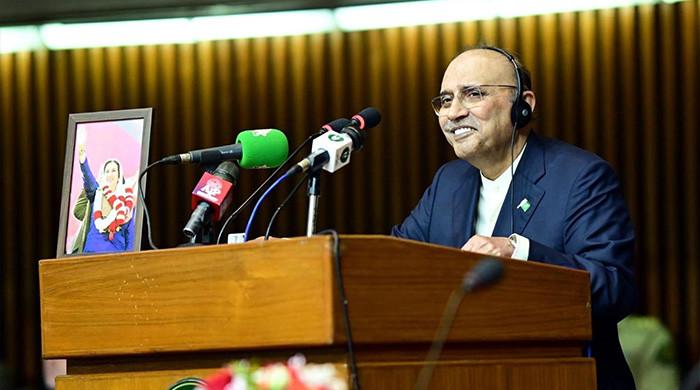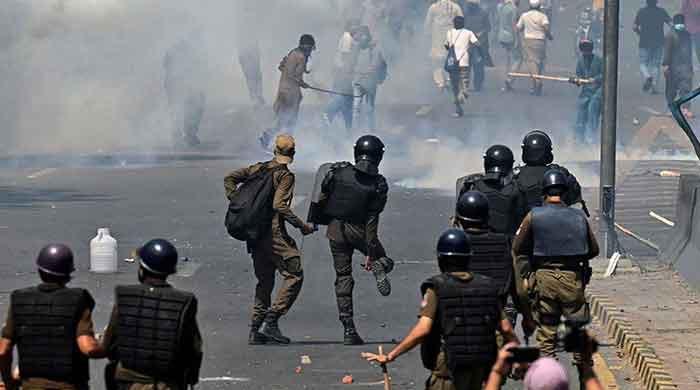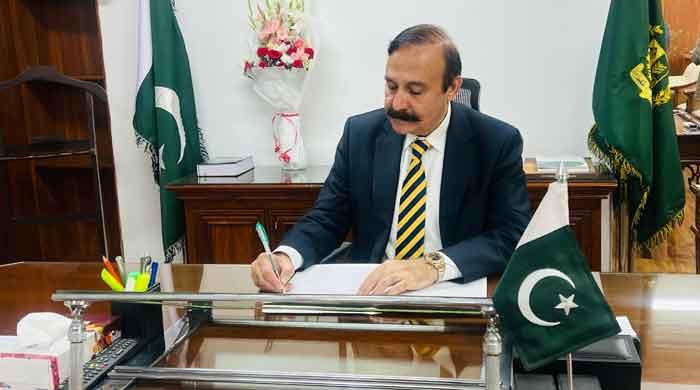Fawad Chaudhry says Pakistan can contribute up to $1bn to global hemp market
"Oil extracted from its seeds can be exported internationally and its plant is effective for relieving chronic pains"
September 02, 2020

ISLAMABAD: Minister for Science and Technology Fawad Chaudhry on Wednesday said industrial hemp has a $25 billion share in the global market and Pakistan can contribute up to one billion dollars in the next three years.
While addressing a media briefing, the minister said the industrial hemp plant (Cannabidiol) has medicinal and industrial uses.
"The oil extracted from its seeds can be exported internationally, its plant is effective for relieving chronic pains, while stem of its plant produces fiber which can replace cotton and boost the textile industry," he said.
The sites for the production of hemp plant had been identified with the help of top bio technology experts in Chakwal, Peshawer and Jehlum due to the favorable climate, Chaudhry said.
Director, International Center for Chemical and Biological Sciences, Dr. Iqbal Chaudhry, said the hemp plant can help relieve chronic pain.
On the industrial side, one option is to grow and export its oil and the other is to create value added products using the oil, after thorough research.
“A billion dollar export target is possible to achieve by making premium products through its oil, besides its usage in cosmetics, soaps, shampoos and many other personal care items,” he added.
Member Science and technology Planning Commission, Dr Hussain Abdi, was of the view that the country cannot achieve progress until its science and technology sector does not grow.
He termed the issuance of a license to allow medical and industrial use of hemp as an advantageous step and said it will help in double production of fiber than cotton and stimulate the local economy.
After extracting the chemical out of hemp, it can be used inthe production of bio-energy, he added.
A day earlier, the science minister had announced approval by the federal cabinet for the country's first license for the industrial and medical use of hemp.
Transport 'revolution'
In today's briefing, the minister also revealed efforts were under-way to make Islamabad the first-ever city of Pakistan to turn Islamabad's public transport system into one that solely uses electric vehicles.
"This project would revolutionalise the entire transport sector of Pakistan," he said.
Chaudhry said that his keen interest was to launch especially designed bikes for girls who face transport problems on a daily basis while going to their schools and colleges.
The launch of electric buses would help reduce travel hazards for these girls and increase their accessibility, he said.
He said an investment of around $50 million would initially be made in the project being implemented by Pakistan and China-based companies, while manufacturing of the electric buses would begin in the second phase.
Renewable energy
Chaudhry said now we were spending billion of rupees on electric wires and poles which would be replaced by batteries in future.
After buses, houses will also be shifted on batteries in future and every house will be able to establish its own grid station, he said.
“It will be the best scenario for Pakistan to be able to produce its own renewable energy through solar and wind resources in the next 10 years and our own Lithium-ion batteries to store that electricity,” he added.
The minister said after a long period, with the support of Special Assistant to the Prime Minister on Petroleum Nadeem Babar and Energy Minister Omer Ayub Khan, a renewable energy policy had been launched in the country.
The biggest failure in the last 20 years, he said, was the country’s inability to manufacture its own combustion engine and related equipment which hindered local manufacturing of cars.
Precision agriculture
Referring to a project utilising precision agriculture methods, the minister stated that high technology farms would be developed including hydroponic, green and open field farms of two, five and 12.5 acres land, with a focus on non-traditional agriculture.
He said black pepper, avocadoes, cherry tomatoes and other exotic vegetables would be given a complete technological treatment including usage of drones and censors, etc., to facilitate small farmers.
Such technology would help revamp the agriculture sector of the country, the minister said.











